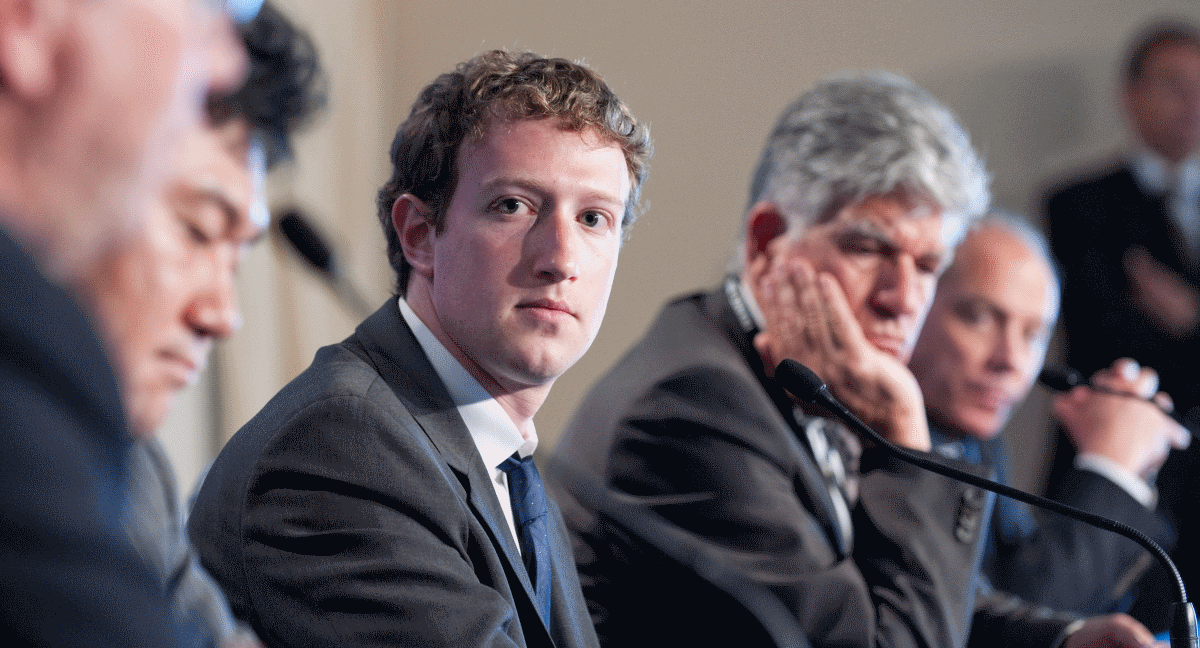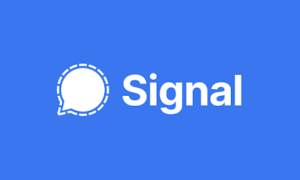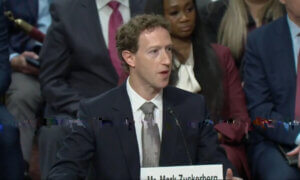On Tuesday, April 10th, Mark Zuckerberg finally testified in front of Congress. After months of scrambling as Facebook tried to appease public concern, Zuckerberg addressed a panel of legislators to clear the air about the Cambridge Analytica scandal, how Facebook handles user data, and how users can control their own data.
We gathered the 8 most important questions raised by Facebook users worldwide and went through Mark Zuckerberg’s testimony to see if we could find any answers. The Facebook CEO’s written testimony is already available in its entirety, but his answers to Congress will provide additional insight.
Here are the most important revelations from the 4+ hour long oral testimony on how Facebook allowed Cambridge Analytica to access 87 million user profiles:
1.What are your privacy rights and how much control do you have over your personal information on Facebook?
Facebook users have continually asked this question, especially in light of the Cambridge Analytica scandal and recent news that Facebook owns Android user’s call history and SMS data. Here’s what Zuckerberg had to say on user’s control over personal information:
Senator Richard Durbin (Illinois): Mr. Zuckerberg, would you be comfortable sharing with us the name of the hotel you stayed in last night?
Mark Zuckerberg: No.
Senator Richard Durbin (Illinois): If you messaged anybody this week, would you share with us the names of the people you’ve messaged?
Mark Zuckerberg: Senator, no. I would probably not choose to do that publicly, here.
Senator Richard Durbin (Illinois): I think that may be what this is all about: your right to privacy, the limits of your right to privacy and how much you give away in modern America in the name of, quote, “connecting people around the world;” a question, basically, of what information Facebook’s collecting, who they’re sending it to and whether they ever asked me, in advance, my permission to do that. Is that a fair thing for the user of Facebook to expect?
Mark Zuckerberg: Yes, Senator. I think everyone should have control over how their information is used. And as we’ve talked about in some of the other questions, I think of that is laid out in and some of the documents, but more importantly, you want your people control in the product itself.
So the most important way that this happens across our services is that every day, people come to our services to choose to share photos or send messages, and every single time they choose to share something, there — they have a control right there about who they want to share it with. But that level of control is extremely important.
2. Is Facebook a monopoly or do we have a real alternative when it comes to social media platforms?
With the #deletefacebook hashtag trending on Twitter, many users have expressed their belief that Facebook is no longer a social media platform for them and have subsequently deleted their accounts. However, many others have failed to find a suitable replacement for this hegemonic social networking site, raising questions surrounding Facebook’s monopoly over the social media market. In the following interaction, Mark Zuckerberg addressed this line of questioning:
Senator Lindsey Graham (South Carolina): Let me put it this way. If I buy a Ford, and it doesn’t work well, and I don’t like it, I can buy a Chevy. If I’m upset with Facebook, what’s the equivalent product that I can go sign up for?
Mark Zuckerberg: Well, there — the second category that I was going to talk about are…
Senator Lindsey Graham (South Carolina): I’m not talking about categories. I’m talking about, is there real competition you face? Because car companies face a lot of competition. If they make a defective car, it gets out in the world, people stop buying that car; they buy another one.
Is there an alternative to Facebook in the private sector?
Mark Zuckerberg: Yes, Senator. The average American uses eight different apps to communicate with their friends and stay in touch with people…
3. Will Facebook have a paid service only or will it give up ads?
The Cambridge Analytica scandal served as a showcase of the old adage “If you’re not paying it, you become the product.” In light of this, many have stated that they would pay for Facebook’s services if that meant they would not be tracked and their data not be used by advertisers. Mark Zuckerberg addressed Facebook’s future business model in an interaction with Senator Orrin Hatch:
Senator Orrin Hatch (Utah): Now, Mr Zuckerberg, I remember well your first visit to Capitol Hill back in 2010. […] You said back then that Facebook would always be free. Is that still your objective?
Mark Zuckerberg: Senator, yes. There will always be a version of Facebook that is free. It is our mission to try and help connect everyone around the world and bring the world closer together and, in order to do that, we believe that we need to offer a service that everyone can afford, and we’re committed to doing that.
Senator Orrin Hatch (Utah): If so, then how do you sustain a business model in which users don’t pay for your service?
Mark Zuckerberg: (pause) Senator, we run ads.
Senator Orrin Hatch (Utah): I see.
4. Why did it take so long to ban Cambridge Analytica from Facebook’s platform?
Facebook drew a lot of ire from its users and the media over the perceived delay in assessing threats and stopping political interference from groups like Cambridge Analytica. Senator Dianne Feinstein asked Mark Zuckerberg exactly how this happened:
Senator Dianne Feinstein (California): If you knew in 2015 that Cambridge Analytica was using the information of Professor Kogan’s, why didn’t Facebook ban Cambridge in 2015?
Mark Zuckerberg: Senator, that’s a great question.
Cambridge Analytica wasn’t using our services in 2015, as far as we can tell. So this is — this is clearly one of the questions that I asked our team, as soon as I learned about this — is why — why did we wait until we found out about the reports last month to — to ban them.
It’s because, as of the time that we learned about their activity in 2015, they weren’t an advertiser. They weren’t running pages. So we actually had nothing to ban.
5. Did Facebook help Trump’s campaign directly?
In light of Cambridge Analytica’s mishandling of Facebook users’ data and troubling connections to an employee from Palantir, a software company specializing in big data, it’s important to know how involved Facebook was in helping the Trump campaign:
Senator Maria Cantwell (Washington): Did Facebook help Trump’s campaign directly?
During the 2016 campaign, Cambridge Analytica worked with the Trump campaign to refine tactics. And were Facebook employees involved in that?
Mark Zuckerberg: Senator, I don’t know that our employees were involved with Cambridge Analytica. Although I know that we did help out the Trump campaign overall in sales support in the same way that we do with other companies.
6. What does Mark Zuckerberg think about the horrific leaked memo signed by Andrew Bosworth, a high-level Facebook executive?
Andrew Bosworth’s memo left many wondering if Facebook would stop at nothing to achieve its goals. We covered the Bosworth leak here, but the memo essentially said no matter the costs, Facebook will continue on this path. Here is what Mark Zuckerberg had to say about his coworker’s words:
Senator Lindsey Graham (South Carolina): Are you familiar with Andrew Bosworth?
He said, “So we connect more people. Maybe someone dies in a terrorist attack coordinated on our tools. The ugly truth is that we believe in connecting people so deeply that anything that allows us to connect more people, more often, is de facto good.” Do you agree with that?
Mark Zuckerberg: No, Senator, I do not. And, as context, Boz wrote that — Boz is what we call him internally — he wrote that as an internal note. We have a lot of discussions internally. I disagreed with it at the time that he wrote it. If you looked at the comments on the internal discussion…
7. As a platform, how much responsibility does Facebook carry for the way that people use it?
Some have said that Facebook is merely a tool and indeed, the company has adopted this position itself. While this gives the impression that Facebook is not responsible for its users’ behavior, recent events have shown that this stance is not acceptable.
Here is what Mark Zuckerberg had to say about this mentality:
Senator John Cornyn (Texas): […] Previously, or earlier in the past, we’ve been told that platforms like Facebook, Twitter, Instagram, the like are neutral platforms, and the people who own and run those for profit — and I’m not criticizing doing something for profit in this country.
But they bore no responsibility for the content. Do you agree now that Facebook and the other social media platforms are not neutral platforms, but bear some responsibility for the content?
Mark Zuckerberg: I agree that we’re responsible for the content, but I think that there’s — one of the big societal questions that I think we’re going to need to answer is the current framework that we have is based on this reactive model, that assumed that there weren’t A.I. tools that could proactively tell, you know, whether something was terrorist content or something bad, so it naturally relied on requiring people to flag for a company, and then the company needing to take reasonable action.
In the future, we’re going to have tools that are going to be able to identify more types of bad content. And I think that there is — there are moral and legal obligation questions that I think we’ll have to wrestle with as a society about when we want to require companies to take action proactively on certain of those things. […]
8. As a user, can you delete everything Facebook and third parties have on you?
As #deletefacebook gathers momentum, a bigger crowd decided to give up Facebook completely, expressing that they feel they have no methods to exercise control over their data.
Facebook has already implemented some measures to offer users some control, but Senator John Cornyn still asked for clarification. Here, Mark Zuckerberg explained Facebook’s ad platform and practices, both of which rely on user data:
Senator John Cornyn (Texas): Under paragraph number two, you say, “You own all of the content and information you post on Facebook.” That’s what you’ve told us here today, a number of times.
So, if I chose to terminate my Facebook account, can I bar Facebook or any third parties from using the data that I had previously supplied, for any purpose whatsoever?
Mark Zuckerberg: Yes, Senator. If you delete your account, we should get rid of all of your information.
Senator John Cornyn (Texas): You should? Or do you?
Mark Zuckerberg: We do. We do.
Senator John Cornyn (Texas): How about third parties that you have contracted with to use some of that underlying information, perhaps to target advertising for themselves? You can’t — do you — do you call back that information, as well? Or does that remain in their custody?
Mark Zuckerberg: Well, Senator, this is actually a very important question, and I’m glad you brought this up, because there’s a very common misperception about Facebook — that we sell data to advertisers. And we do not sell data to advertisers. We don’t sell data to anyone.
Senator John Cornyn (Texas): Well, you clearly rent it.
Mark Zuckerberg: What we allow is for advertisers to tell us who they want to reach, and then we do the placement. So, if an advertiser comes to us and says, “All right, I am a ski shop and I want to sell skis to women,” then we might have some sense, because people shared skiing-related content, or said they were interested in that, they shared whether they’re a woman, and then we can show the ads to the right people without that data ever changing hands and going to the advertiser.
That’s a very fundamental part of how our model works and something that is often misunderstood. So I’m — I appreciate that you brought that up.
Without a doubt, the past few weeks have been difficult for Facebook users, Mark Zuckerberg, and the social media landscape. It’s obvious that this scandal opened up serious questions on user data and privacy and it will likely be a long time until users feel comfortable sharing information online in the same ways.
Are there any other burning questions you would like to get answers to, from Zuckerberg and other media giants?
Follow TechTheLead on Google News to get the news first.

























